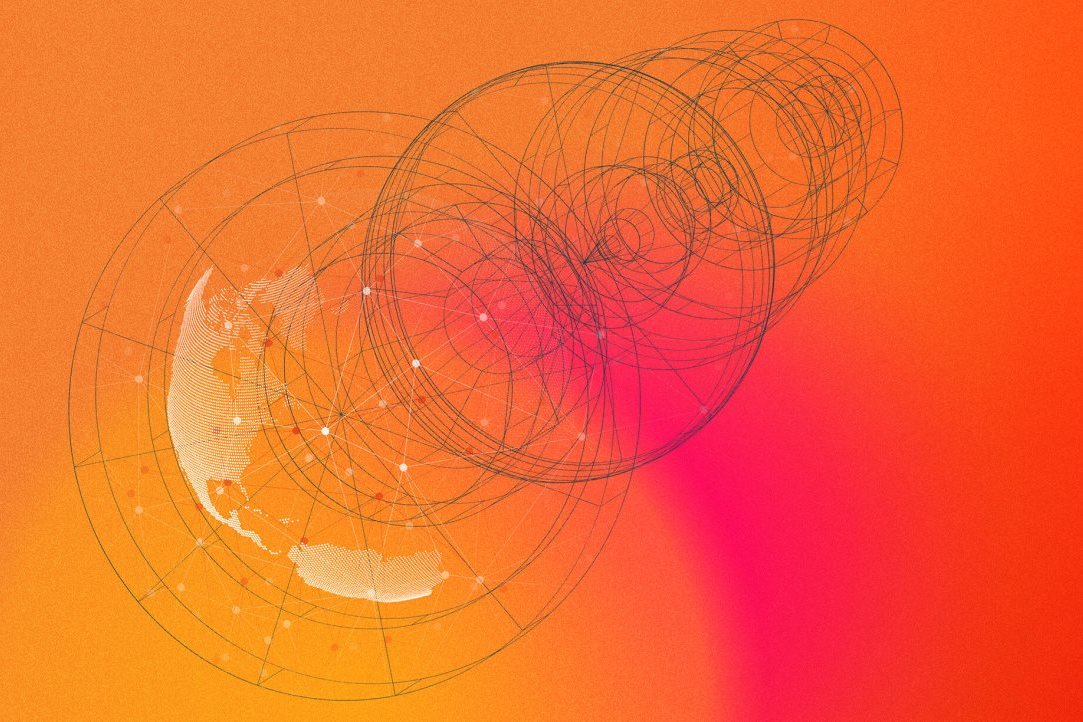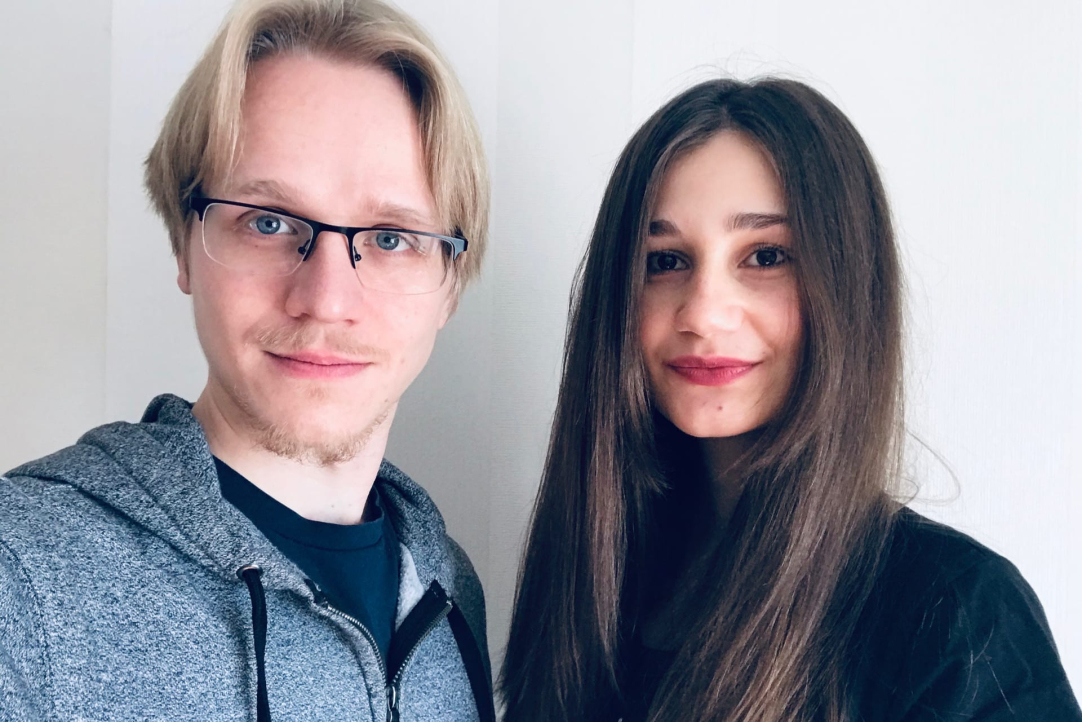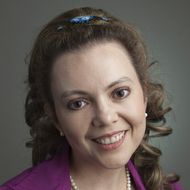HSE Alums Take Home Prizes in Two International Data Competitions

Ekaterina Melianova and Artem Volgin, both graduates of the Master’s Programme Applied Statistics with Network Analysis, took second place in two CDP competitions: the Unlocking Climate Solutions Kaggle Competition and the COVID-19 Symptom Data Challenge. In the coronavirus-related data competition, the HSE graduates outperformed professors and PhD students of Virginia Polytechnic Institute and State University, the University of Washington, the Massachusetts Institute of Technology (MIT), and other foreign universities.
Valentina Kuskova, Academic Supervisor of the Master’s Programme in Applied Statistics with Network Analysis, says that she only welcomes the participation of HSE students in competitions like these. ‘This is not only a chance to use your skills and knowledge of the studied methods in practice, but also an opportunity to participate in a competition alongside the best teams from all over the world. Open anonymous competitions are a reliable way of getting feedback about your knowledge and skills.’ Students of our Master’s Programme can boast various achievements: they are winners of Student Research Paper Competition held by HSE University, they receive prestigious scholarships and awards, and some of them continue their studies in doctoral programmes at some of the world’s most prestigious universities, which receive hundreds of applicants per place. ‘We take a systematic approach to providing a high quality education for our future data analysts,’ Professor Kuskova says.
Facebook and COVID-Related Data Analysis
HSE graduates Ekaterina Melianova and Artem Volgin are currently working as research assistants in the HSE International Laboratory for Applied Network Research. They are also education consultants at the World Bank. The students learned of the COVID-19 Symptom Data Challenge from Open Data Science (ODS), the largest Russian-speaking data analysis community. The participants were supposed to do research based on Facebook surveys.

‘Since the beginning of the pandemic, Facebook has been carrying out a large-scale online survey on COVID-19. You may have seen popup windows inviting you to take part in the survey,’ says Artem Volgin. ‘There were various questions there: people were asked whether they had any coronavirus symptoms, how frequently they appear in public places wearing masks, etc. Thanks to its wide coverage and popularity, the social network managed to gather unique data about more than 30 billion people across the globe. The total amount of data gathered allowed aggregating information by days and different regions.’
Artem and Ekaterina got interested in the competition. The organizers were offering a wide range of research topics to look into. However, our HSE graduates quickly realized that most of the contestants would be designing models to forecast future COVID outbreaks. So, they decided to do something entirely different.
‘We used Multilevel Vector Autoregression Modelling. This method is designed to evaluate multiple connections between variables in time,’ explains Artem. ‘We analyzed how government measures and behaviour of various age groups (for instance, wearing masks and visiting public places) influence new coronaviruses outbreaks in different countries. We were able to accumulate a number of interesting results, which we presented at the final review session.’
Their research was highly praised: the HSE graduates passed all stages and reached the final. ‘The competition was divided into phases and was held in an unusual format. There was even a kind of preliminary presentation held on Zoom, during which we spoke before scientists dealing with the COVID-19 topic in the USA,’ says Artem, sharing his impressions. ‘We were of course more than happy to have won second place, surpassed only by professors and PhD students from American technical universities. But they have been forecasting flu epidemics and other virus diseases for two years.’
‘The main benefit of our programme is that it makes most complex analytical methods accessible to experts with any higher education background,’ says Valentina Kuskova. ‘Ekaterina and Artem are sociologists without any additional degrees in Mathematics, Computer Science or other similar subjects. The fact that our students outperformed professional data scientists from MIT and the University of Washington [in the Unlocking Climate Solutions Competition – ed.] using knowledge they gained thanks to our programme provides clear evidence that we are able to train world class data scientists и analysts irrespective of their initial university degree.’ The academic supervisor points out that these prizes are more than just cause for excitement—they are the best compliment to both the teaching staff of the laboratory of the programme and their approach to teaching students.
Unlocking Climate Solutions Kaggle Competition
The Kaggle format of CDP’s Unlocking Climate Solutions competition was more familiar for the HSE graduates. In spring 2020, when they were still master’s students, Ekaterina and Artem took part in another competition called DS4G: Environmental Insights Explorer, which was held on the Kaggle platform. The students won first place, beating out more than 100 teams.
Kaggle is a Data Science platform by Google. This community brings together about three million data and machine learning specialists from all over the world. The resource publishes teaching aids, conducts surveys and holds online competitions. Participants of its data competitions are asked to solve various applied tasks, and the expert panel evaluates their submissions based on a number of criteria: quality of the model designed, informative value of the visualization, and usefulness of the recommendations, etc.
The Unlocking Climate Solutions Competition turned out to be much more challenging this year. It was arranged by CDP, a company that assesses measures cities and corporations take to address climate change. In the competition, CDP provided the contestants with the results of its annual expert survey of city administrations and business managers from across the globe, which they could use as initial data.
‘Our task was to construct a number of KPIs to analyze environmental-related activities performed by cities,’ explains Ekaterina. ‘Not only were we able to measure and assess cities’ KPIs, but we also used data envelopment analysis to estimate the efficiency of each city’s performance. Association rule mining helped us look into the interconnections between environmental hazards, cities’ activities to mitigate them, and additional benefits of these activities. In addition, with the help of natural language processing, we outlined different topics in environmental reports published by cities. In my opinion, our ideas and analysis provided the organizers with interesting and helpful results.’
As in the other competition, Artem and Ekaterina placed second in this competition. ‘We were very happy, although not as much as we were with our victory last year,’ admits Ekaterina. ‘But of course, we put in a lot of effort to win the competition; we felt as if we had just successfully defended a dissertation.’
HSE and Advice to Younger Colleagues
Ekaterina emphasizes that the knowledge and skills she and Artem gained at HSE helped them perform so well in the competitions. ‘The bachelor’s and master’s programmes taught us how to set up research tasks, how to use statistical methods to solve them, how to interpret the obtained results, how to incorporate them in a wider problematic context, and how to identify the practical importance of the results,’ the she says.
She also encourages students participate in international competitions. ‘Failures are as beneficial as victories there: you can both practice your analytical skills and overcome performance anxiety. I think many of those who have won some competitions may have failed in others, and we are not an exception to this rule.’

Valentina Kuskova, Academic Supervisor of the Master’s Programme ‘Applied Statistics with Network Analysis’
I am truly happy and I cannot help feeling pride in my students when they place higher than teams from MIT and other world-class universities. This is not the first time these graduates have been awarded first and second places—they have already won four international competitions. Therefore, this is not just a lucky coincidence, but a regular pattern. If you add the fact that a quarter of our graduates continue their studies at the world’s best doctoral programmes, you will see that this is also an important international acknowledgement of the approach we use in teaching future data analysts.
Our programmes—Applied Statistics with Network Analysis, in which Artem and Ekaterina studied, and our new Coursera-based ‘mirror’ programme Master of Data and Network Analytics—implement an applied practice-oriented approach to teaching the most challenging methods of data analysis. This is not the most common approach: the majority of ‘traditional’ programmes in the area rely mainly on theory and mathematics rather than practically formulated problems. It is the ability to perform correct evaluation of a problem that helps our students find the necessary tools to solve it and win a competition.
Artem Volgin
Valentina Kuskova
Ekaterina Melianova
See also:
Arkhangelskoye Estate Museum Launches Open Call for Artists
The Arkhangelskoye Estate Museum is launching an open-call for the exhibition ‘Water in Art. Water in the Estate.’ The exhibition will feature paintings, graphics, sculptures, decorative and applied arts from the museum's collection, as well as works by young artists created specifically for the project.
International Competition of Short Videos about Cities Is Underway
The Moscow City Tourism Committee and HSE Art and Design School invite young directors, animators, cameramen, and other authors working with video to participate in the International Competition of Short Videos about Cities. The contest is organised on the platform of HSE Art and Design School and the Creative City Project of the Institute of Creative Industries in the framework of the ‘Territory of the Future’ Moscow forum and festival.
Season Eight of HSE CREATIVE OPEN Competition Begins
HSE CREATIVE OPEN international online competition of the HSE Art and Design School opens the summer season featuring new categories: ‘Visual Research,’ ‘Game Design,’ ‘Motion Design,’ ‘Poster,’ and ‘Digital Product.’
HSE University and Pobeda Airlines Launch Joint Competition
HSE Art and Design School, in collaboration with the Pobeda Airlines, has announced the start of a competition to create a new uniform design for flight attendants and representatives of the airline. Young professional designers, as well as students over 18 years old studying at Russian universities in full-time and part-time programmes in the field of ‘Design and Fashion,’ will have the opportunity to showcase their talent.
HSE University and Adyghe State University Launch Digital Ethnolook International Contest
The HSE Centre for Language and Brain and the Laboratory of Experimental Linguistics at Adyghe State University (ASU) have launched the first Digital Ethnolook International Contest in the Brain Art / ScienceArt / EtnoArt format. Submissions are accepted until May 25, 2024.
‘The Goal of the Contest Is to Select Bold Ideas Aimed at Fostering a More Equitable Global Development’
HSE Vice Rector, Head of the BRICS Expert Council–Russia and Co-chair of the BRICS Civil Forum Victoria Panova, and Dean of the HSE Faculty of Humanities and Chair of the Contest Jury Felix Azhimov, announced the primary objectives of the contest, its format and potential participants during a press conference at TASS. Nationals from the BRICS countries, aged 18 to 45, are eligible to apply for participation in the contest. The jury will select ten winners, three of whom will be given the opportunity to attend the BRICS Civil Forum in Moscow in person.
HSE University to Reward Students Who Write Their Thesis Using AI
HSE University has launched a competition for solutions using artificial intelligence technology in theses work. The goal of the competition is to evaluate how students use tools based on generative models in their 2024 graduation theses (GT).
Imprint: An Open Competition for Photographers
The ‘Photography’ educational track of the HSE Art and Design School is launching an online magazine called Imprint. The magazine will focus on collecting, summarising, and making sense of information about modern photography in Russia. The school will support talented photographers and offer them a platform for creating, developing, and uniting.
'Unconventional Thinking Can Be Cultivated through Competitions Like Physics Tournaments'
Last week, university students from all over the country came to HSE University for the All-Russian Student's Tournament of Physicists. The tournament took the form of battles in which teams tackled physics problems while taking turns in the roles of speakers, opponents, and reviewers. Based on the competition results, the combined team 'Volume Dependence' emerged as the winner and will participate in the upcoming international tournament in Zurich.
Second Season of ‘Parajanov—100’ Contest Launched at HSE Art and Design School
As part of a continuing exploration of the national cultural context, the HSE University Art and Design School and the Russian-Armenian (Slavonic) University, in collaboration with the Sergei Parajanov Museum and the Artists' Union of Armenia, have announced the second open international online contest for collage in animation dedicated to the centenary of Sergei Parajanov’s birth.


